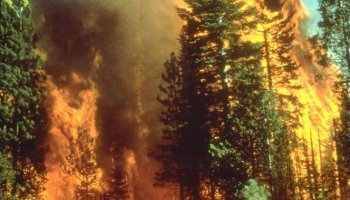
Geography 402 focuses on collective human causes of and response to natural hazards. The emphasis is on the human-environmental interactions that may result in natural disasters to human lives and properties. The course has four objectives: (1) Understand the physical processes that may lead to detrimental outcome to human lives and properties, which sets the foundation for the second objective; (2) Survey historical hazard causes and coping strategies, i.e., why natural processes would become disastrous to human societies and how humans make trade-offs between gains and losses in hazardous environment, which leads to the third objective; (3) Evaluate current natural hazard mitigation with case studies of recent and/or major natural disasters in order to gain insights into the role of stakeholders in mitigation strategies, which establishes a framework for the fourth objective; (4) Apply basic concepts and tools for hazard mitigation, focusing on hazard prevention (management) instead of disaster (emergency) response, and developing a conceptual framework of sustainable development in human-environmental interaction.